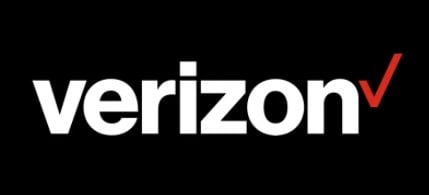 Efforts to hold internet service providers in the United States accountable for the piracy activities of their subscribers are gaining momentum.
Efforts to hold internet service providers in the United States accountable for the piracy activities of their subscribers are gaining momentum.
In 2019, Cox Communications was ordered to pay a billion dollars in damages to record labels. The decision is being appealed by Cox, but it set the stage for similar lawsuits, including a new complaint reported just yesterday targeting AT&T.
Filed in Texas by filmmaker Voltage Pictures and several affiliates, together behind movies such as "After We Collided," "Dallas Buyers Club," "Room 203," and "The Bird Catcher", the lawsuit lambasts AT&T for not doing enough to prevent subscribers from engaging in movie piracy.
A new and broadly similar complaint filed against Verizon Communications and Cellco Partnership follows a similar template.
Verizon Hit With Copyright Complaint
The premise of the lawsuit is that Verizon "can easily take action against online piracy" by disconnecting customers who repeatedly use its services to download and share movies. The company doesn't even have to find these pirates itself because the plaintiffs have provided infringement notices carrying all of the information it needs.
The reason that Verizon hasn't taken action, the complaint notes, is because Verizon makes between $400 and $1,000 in additional profits per 'pirate' account. But this isn't permissible under law, the plaintiffs claim, because when Verizon receives knowledge of repeat infringement yet fails to disconnect the associated accounts, it can be held liable for customers' piracy.
Hundreds of Thousands of Infringements
According to the plaintiffs, IP addresses allocated to Verizon/Cellco Partnership were monitored by anti-piracy tracking outfit Maverickeye downloading and sharing pirate copies of their movies. Over the past three years, "hundreds of thousands" of these infringements were logged and over 90,000 corresponding infringement notices were sent to the ISP.
On this basis, the plaintiffs believe that Verizon/Cellco were willfully blind to these infringements because neither took meaningful action to prevent ongoing infringement by their customers. In some cases, infringement notices weren't even forwarded to the allegedly-infringing subscribers, the plaintiffs add.
The complaint highlights several specific IP addresses allocated to Verizon customers, for which the plaintiffs sent large volumes of copyright infringement complaints. One IP address was listed in infringement notices 800 times, another appeared 700 times, with three others being identified on 600, 500 and 400 occasions.
In these cases and others like them, it's alleged that Verizon had the opportunity to suspend customer accounts but failed to do so.
Repeat Infringers and the DMCA
When Congress passed the DMCA in 1998 (not 1988, as this lawsuit alleges), service providers were given 'safe harbor' protections if they adopted and reasonably implemented policies for terminating repeat infringers "in appropriate circumstances."
Verizon publishes its policy here but according to the complaint, the implementation of the Verizon policy places an unfair burden on rightsholders.
The plaintiffs say that BitTorrent-style infringements must be reported via 'Conduit Notice Forms' but Verizon prohibits these from being filled out using automated processes. Verizon does operate the "Verizon Anti-Piracy Cooperation" program but the plaintiffs say the contract contains "onerous" terms.
These include an agreement not to sue Verizon for copyright infringement alongside processing fees of $75 per hour for IP address lookups.
In any event, the lawsuit claims that Verizon failed to terminate customer accounts, even when it received multiple complaints against specific accounts. As a result, it has lost its safe harbor protections under the DMCA.
Several Types of Copyright Infringement
Due to the alleged inaction of Verizon/Cellco Partnership, the plaintiffs claim that the defendants are liable for contributory and vicarious copyright infringement. These claims alone could run to many millions of dollars in damages.
Due to the plaintiffs' Copyright Management Information (CMI) being removed or altered in movie files distributed via BitTorrent by Verizon customers, the ISP is also liable for contributory and vicarious violations under 17 U.S.C.S. §1202(a)(b), the complaint adds.
The plaintiffs demand actual or statutory damages and an order that compels Verizon to implement a repeat infringer policy that terminates the accounts of repeat infringers.
In common with the lawsuit the plaintiffs just filed against AT&T, the complaint demands an order that compels Verizon to block access to pirate sites listed in the USTR's Notorious Foreign Markets report. These include YTS, The Pirate Bay, RARBG, and 1337x.
A copy of the complaint, filed by Voltage Holdings et al. at the District Court of the Southern District of New York, can be found here (pdf)
From: TF, for the latest news on copyright battles, piracy and more.
No comments:
Post a Comment